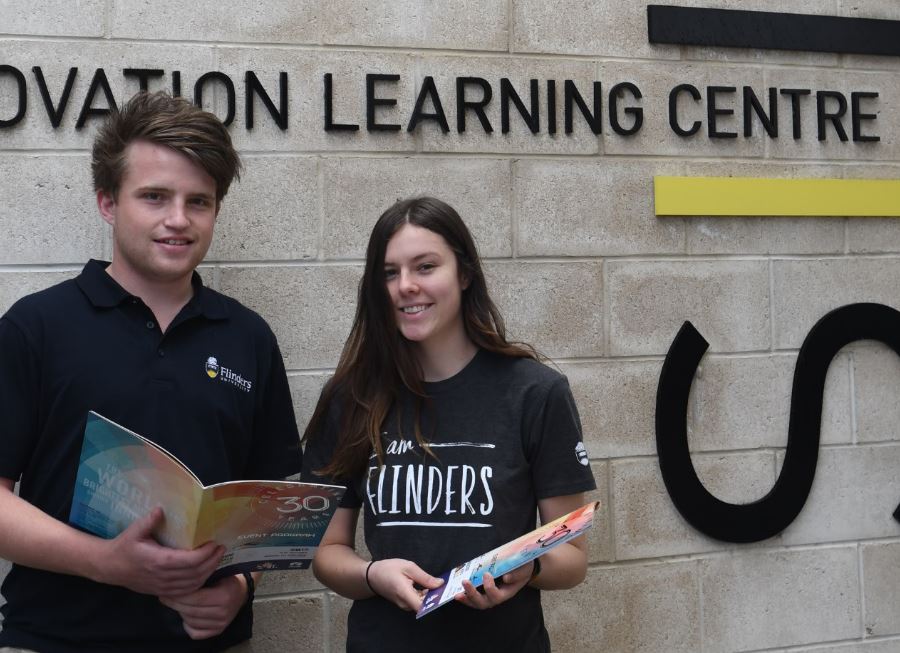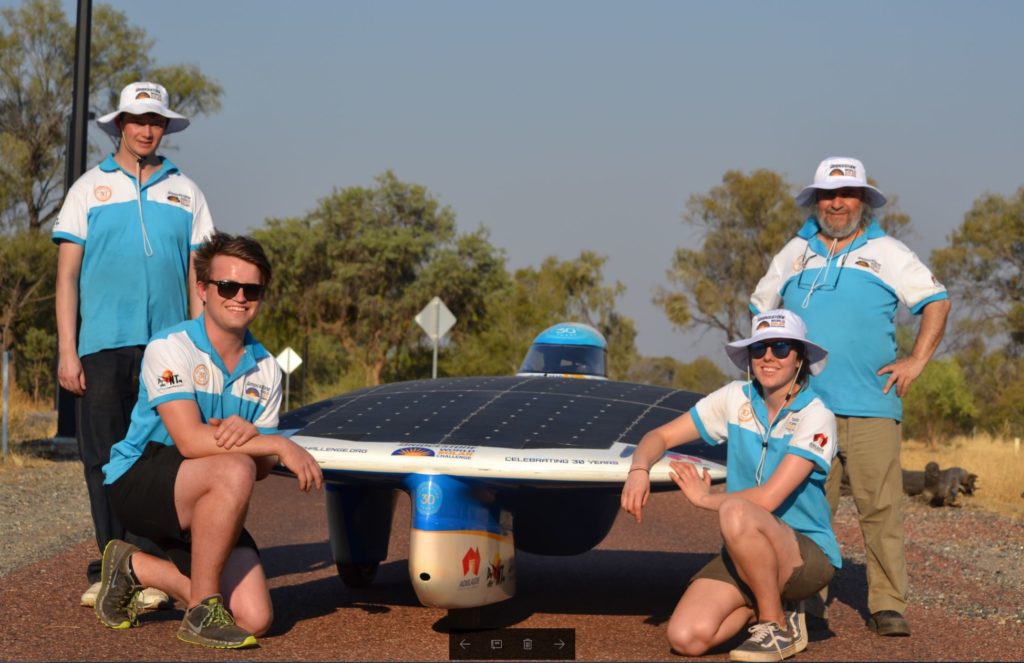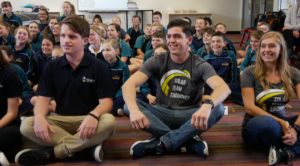
As the Flinders solar car prepares to start the Bridgestone World Solar Challenge, a journey of discovery is heading in the opposite direction.
Education students Matthew Siviour and Kimberley Jackson are doing some ‘prac teaching’ and community engagement with schools along the Adelaide-Darwin challenge route to encourage country schoolchildren with their science, technology, engineering and mathematics (STEM) subjects.
The special Bridgestone Outreach project, travelling with the advanced Aurora solar car, will deliver the Bridgestone World Solar Challenge (BWSC) schools learning program to SA and NT schools – arriving in Darwin on 30 September.

The trip started at Port Augusta on 22 September before going to Coober Pedy Area School on 25 September, Alice Springs on 26 September, Tennant Creek on 28 September and Katherine on 29 September.
The Flinders Automotive Solar Team (FAST) entry in the world’s leading solar challenge event is heading to Darwin to start the 3,000km trip to Adelaide on 8 October, travelling through Katherine, Tennant Creek, Alice Springs, Coober Pedy and Port Augusta to finish on 15 October in Victoria Square, Adelaide.
Flinders University paramedic students Zeb Schulz and Acacia Vormister will support the car’s passengers and crew with the event’s Chief Medical Officer during the long-distance event.
The Learning Guide was developed to engage students with solar technology themes during the BWSC event, and to assist in developing STEM-based learning.
Kim Jackson, who specialised in biology and earth sciences, says the trip through the centre of Australia is opening her eyes.
“It’s my first time in the Northern Territory, and Coober Pedy,” she said from the Coober Pedy Information Centre.
“It’s opening my eyes to some of the challenges of working in the country, although the communities are very welcoming.”

Country student Matt Siviour says the experience is worth while.
“The kids have been really enthused and interested in what we’re showing them,” he says.
“We weren’t really sure of what to expect in Coober Pedy and a lot of people, including tourists, have come and had a look.”
Both Matthew and Kimberley are looking forward to becoming science teachers next year.
The Bridgestone Learning Guide uses the “Five Es” model which encouraged students to Engage, Explore, Explain, Elaborate and Evaluate.
This resource is designed to best support Middle School students in their learning, but can be adapted to a younger or older student audience.
The Aurora team are running specially designed activities for school students in regional and outback locations that wouldn’t normally get access to this type of STEM content – and to see a solar car first hand.
Professor Martin Westwell, from the Flinders Centre for Science Education in the 21st Century, says STEM education is shifting in schools from the old industrial model that focused exclusively on knowledge and know-how to developing young people who can use their knowledge in unusual and unrehearsed situations.
“This flexibility and ability to deal with uncertainty and complexity is increasingly important for young people,” says Professor Westwell.
“Projects like the World Solar Challenge can help young people and their teachers to see how these strengths can be incorporated into their STEM learning, empowering young people to shape the future.”
Rural and remote students often have life skills in improvisation and balancing competing priorities and also produce some exceptional academic results and performances.
However, the tyranny of distance is being addressed by an independent review for Regional, Rural and Remote Education in Australia led by Flinders Emeritus Professor John Halsey.
The review is examining national aggregate results which shows that RRR students under-achieve overall.
The independent reviewer, Professor John Halsey, says RRR students are entitled to fair and equitable access to education.
More than 50 Flinders University students and staff from engineering, computer science, information technology, business, mechanics, science, nanotechnology, marketing, tourism, health sciences and other arts and sciences courses have been involved building a practical and efficient family solar electric car for the 2017 Bridgestone World Solar Challenge.
Cheer the FAST team and Flinders Investigator Mark III on Facebook https://www.facebook.com/FlindersAutomotiveSolarTeam/ or twitter @FlindersSolar.
Keep up to date with all the latest information, including tracking the cars on their journey here.
The Cruiser Class aims to support the design of practical electric vehicles and entries are judged on a range of design and performance measures.
Also go to Facebook.com.au/Worldsolarchallenge and Twitter (@WorldSolarChlg #BWSC17).

